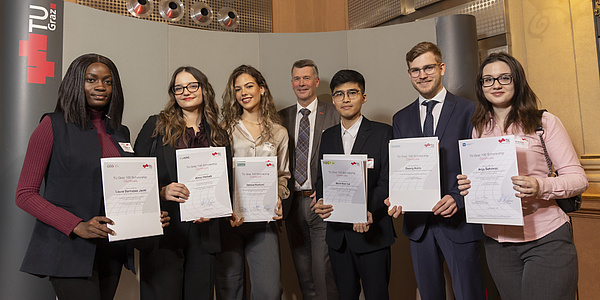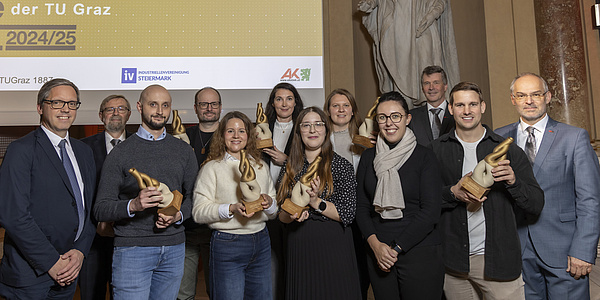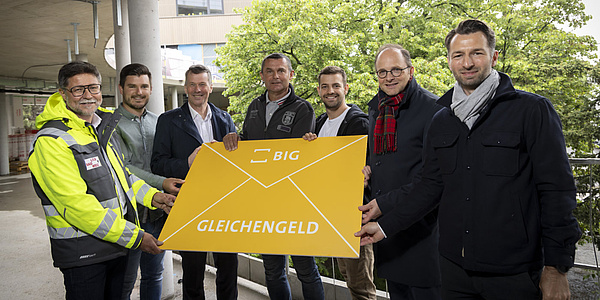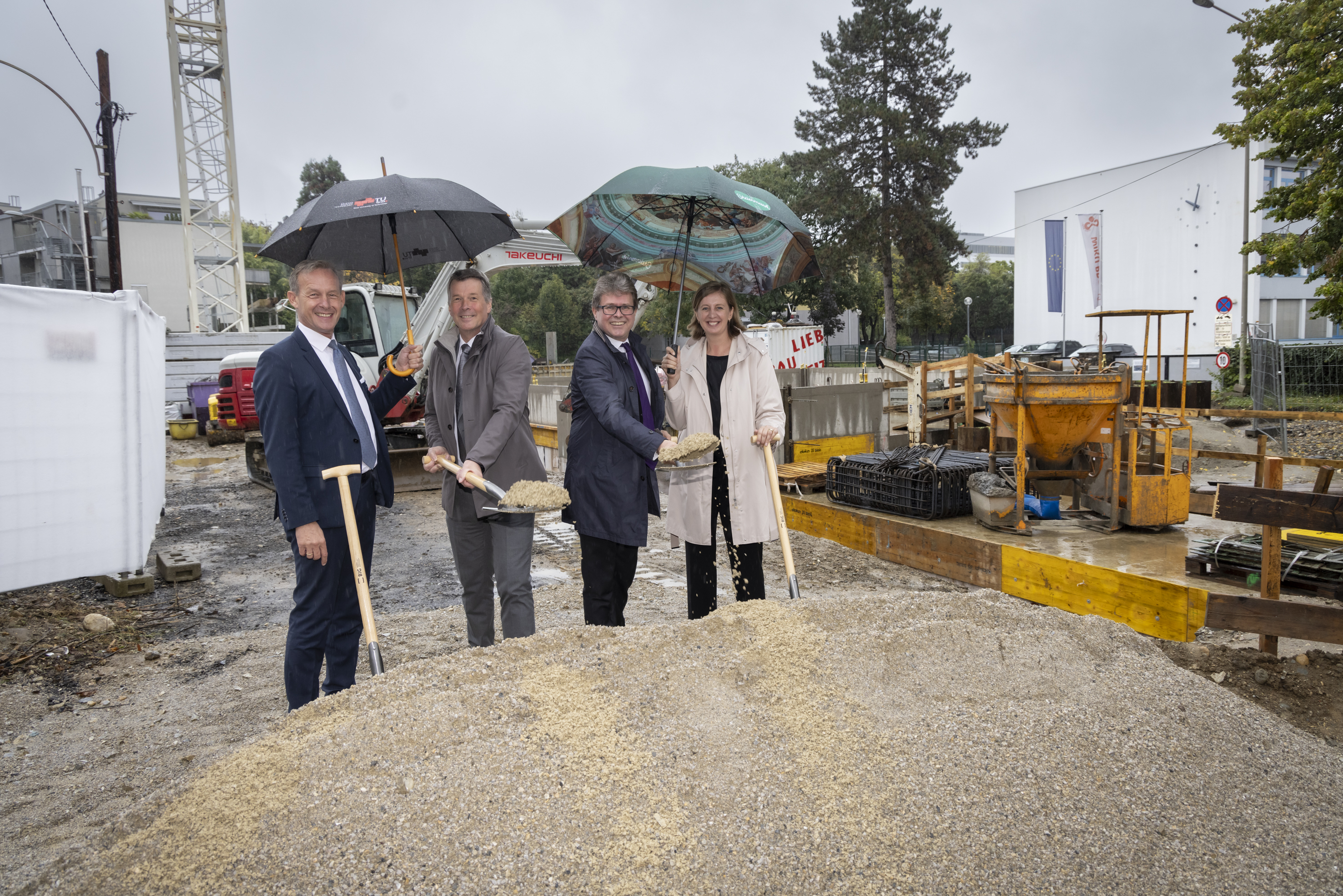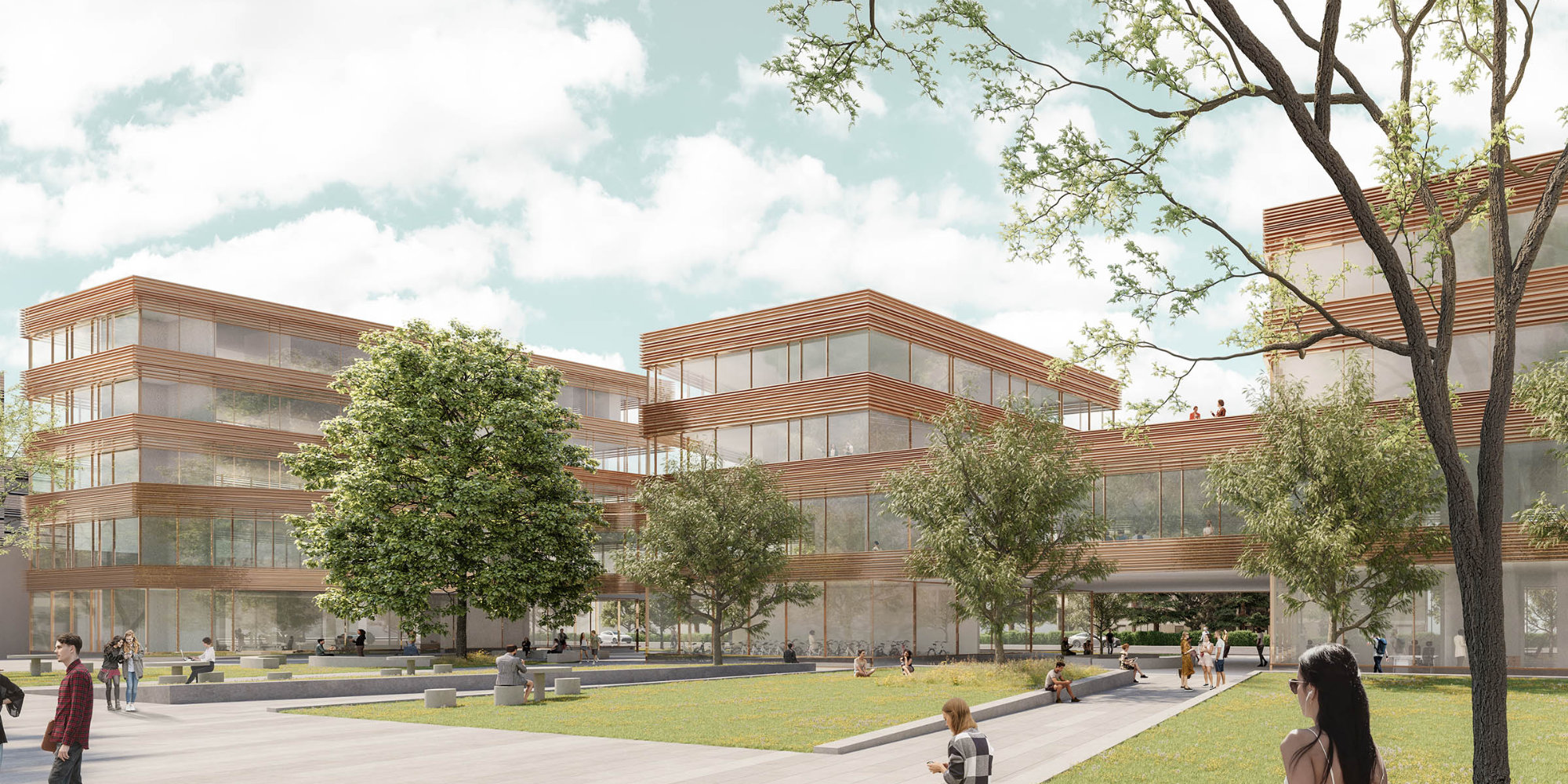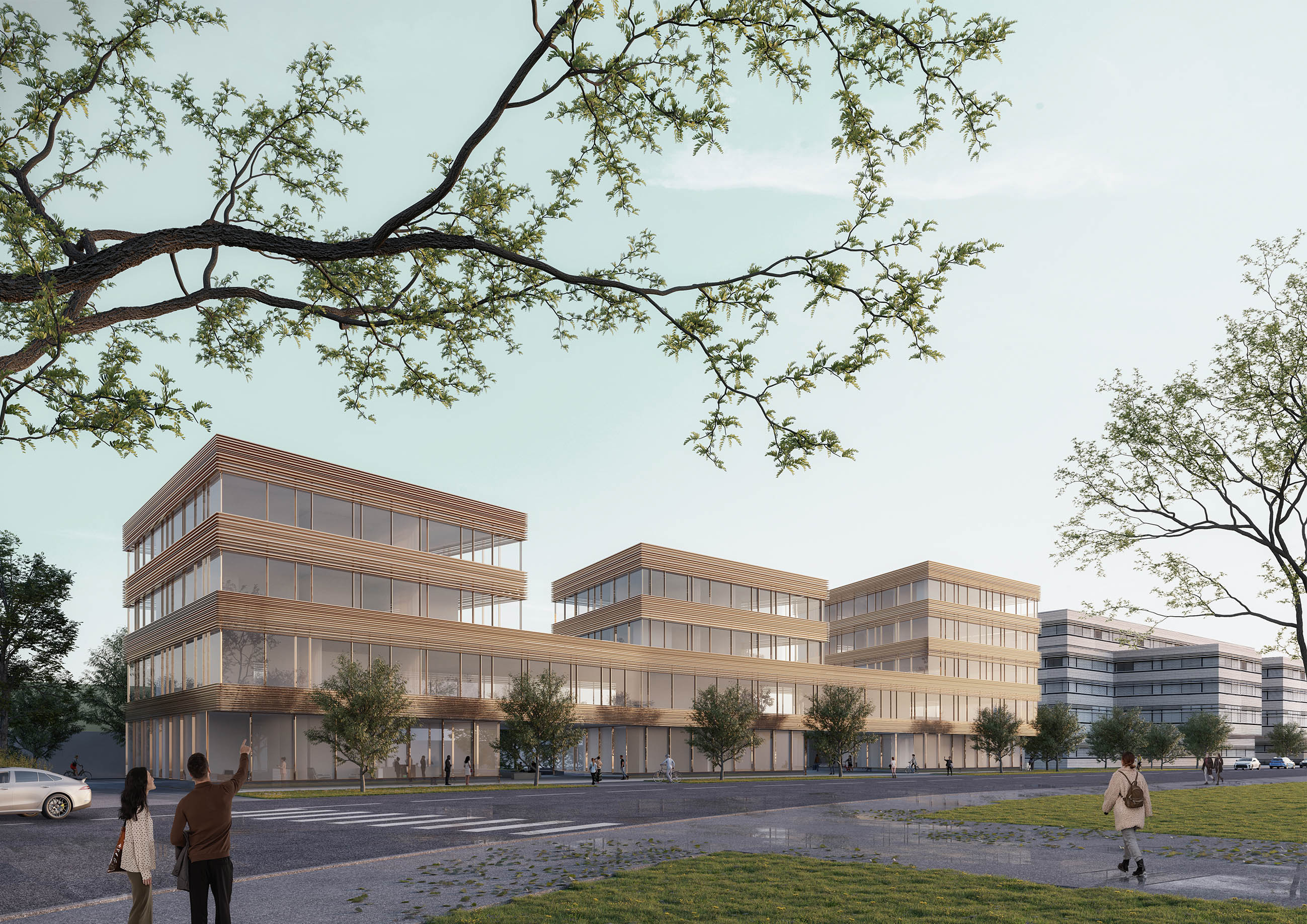Ceremonial launch of the TU Graz Cybersecurity Campus

The Cybersecurity Campus will provide TU Graz with its own internationally competitive location for its top research focus on cyber security. On Friday, September 27, Federal Minister of Science Martin Polaschek, State Councillor Barbara Eibinger-Miedl, TU Graz Rector Horst Bischof and Gerald Beck, Managing Director of Bundesimmobiliengesellschaft, celebrated the start of construction with a ground-breaking ceremony. The ultra-modern and climate-friendly research center with its wood and glass façade is scheduled to be opened in spring 2026. The total investment costs amount to around 25 million euros.
Martin Polaschek, Federal Minister of Education, Science and Research: “The Cybersecurity Campus Graz will create an innovative environment for research and its industrial application. The new building will create additional office and laboratory space, offering around 160 workplaces for employees and providing researchers and students with the opportunity to network with companies. The integration of the Cybersecurity Campus on the Inffeldgasse campus will create new synergies with the thematically linked neighboring buildings Data House and SAL building (Silicon Austrian Labs) and add another important research facility to the Inffeldgasse campus and the city of Graz.”
Barbara Eibinger-Miedl, State Councillor for Science and Research: “Today's ground-breaking ceremony for the Cybersecurity Campus is a milestone for IT security research in Styria and strengthens our position as a leading location in this field in Europe. With this innovative research center, we are not only creating valuable space for scientific excellence, but also making an important contribution to the development of secure technologies. This will make this TU Graz campus a driver of innovation in cyber security.”
Horst Bischof, Rector of TU Graz: “TU Graz is visible worldwide in the field of cybersecurity. With the Cybersecurity Campus Graz, this outstanding research will also be physically and visibly anchored in the research hub of Styria. With this new building, we are not only creating space for outstanding research and innovative teaching in the field of IT security, but also promoting close cooperation between science and industry. In this way, we are strengthening TU Graz as a leading center for cyber security in Europe and the international competitiveness of the region.
Gerald Beck, Managing Director of Bundesimmobiliengesellschaft: “With the Cybersecurity Campus, Bundesimmobiliengesellschaft is creating space for cutting-edge research at TU Graz. The new building will be climate-friendly with wood, geothermal energy and new green spaces. Architecturally, the staging and thus the preservation of the old silver lime tree is interesting. We are employing local companies from the region to build the CCG.”
The Cybersecurity Campus is being built on the Inffeldgasse campus of TU Graz and was planned by eep architekten ZT GmbH. The Graz-based architecture firm emerged as the winner of the EU-wide competition. The competition jury particularly praised the integration of the new building into its surroundings, the skilful structuring of the building volumes and the climate-friendly solutions, in particular the use of wood.
The new building is being constructed on a former car park, which avoids new soil sealing. It consists of three building sections totalling 5,000 m² of net floor space, which are connected via a common floor on the first floor. The roofs in between feature accessible green terraces. Planning expertise was required for the highly protected silver lime tree on the building site. The almost hundred-year-old deciduous tree can be preserved, the building is built around it. From some of the common rooms and a terrace, the researchers have a beautiful view of the sweeping treetop and can bring the greenery from outside into the building. In addition, around 15 new trees will be planted and a six metre wide green strip will be created to the pavement.
The Institute for Applied Information Processing and Communications of TU Graz will be housed in the highest and largest building section with five upper floors as well as in the connecting first floor. The other two buildings, each with four upper floors, are reserved for the TU Graz Buildings and Technical Support Department and for relevant start-ups and companies. The foyers, seminar rooms and lounge areas are located on the ground floor, with offices and laboratories on the upper floors. Around 100 new, covered bicycle parking spaces will be created for the campus.
Geothermal energy will be used to generate energy, which will be extracted from a depth of 120 metres via 24 probes; a PV system will be installed on the roof.
Special attention is paid to the microclimate during the planning phase so that no heat island is created and the campus is prepared for rising temperatures. Greenery will be extensively planted on the flat roofs; together with grassed swales, thus creating areas where rain can seep away and evaporate naturally. This cools the air and relieves the burden on the sewage system at the same time. The division into three components ensures fresh air supply; the light-coloured materials used absorb less solar energy than dark ones; the few dark asphalt surfaces required are shaded by trees or the building itself and a wooden façade stores less heat than concrete or aluminium façades.
More space for cutting-edge research in cybersecurity
TU Graz is one of the world's leading universities in IT security research. Around 80 people work in this field and conduct research into encryption technologies, secure system architectures and applications, methods for verifying the security of systems and trustworthy AI models. Cybersecurity research and teaching will be further expanded at TU Graz and the Cybersecurity Campus Graz will create the necessary space for additional working groups and optimal conditions for pioneering research and innovative collaborations. There will also be space for IT start-ups and companies in the new building.
The Head of the Institute for Applied Information Processing and Communications (IAIK), Stefan Mangard, emphasizes: “At this Cybersecurity Campus, we are creating an innovation ecosystem for cyber security that links science and business even more closely. This will enable us to meet the manifold IT security requirements that affect all areas of daily life even more quickly and effectively in research and application, and we will offer our students even better conditions for their excellent education.”
Achievements recognized internationally
IAIK has received three ERC grants from the European Research Council in recent years and has made significant contributions to IT security research. These include the discovery of the CPU security vulnerabilities “Meltdown” and “Spectre” as well as awards in global cryptography competitions. In 2023, the algorithm ASCON developed at IAIK was declared the international standard for lightweight cryptography by the US National Institute of Standards and Technology (NIST).
This research is anchored in the Field of Expertise "Information, Communication & Computing", one of five strategic foci of TU Graz.
Kontakt
Emilie BRANDL
Corporate communications
Bundesimmobiliengesellschaft
Mobile: 0 664 807 45-1130
emilie.brandl@big.at
www.big.at
Barbara GIGLER
Press officer
TU Graz
Mobile: 0664 608736006
barbara.gigler@tugraz.at
